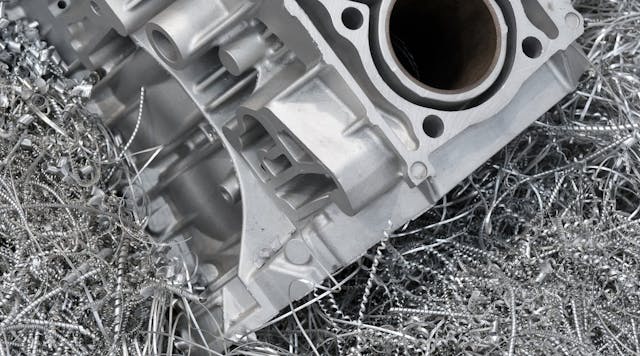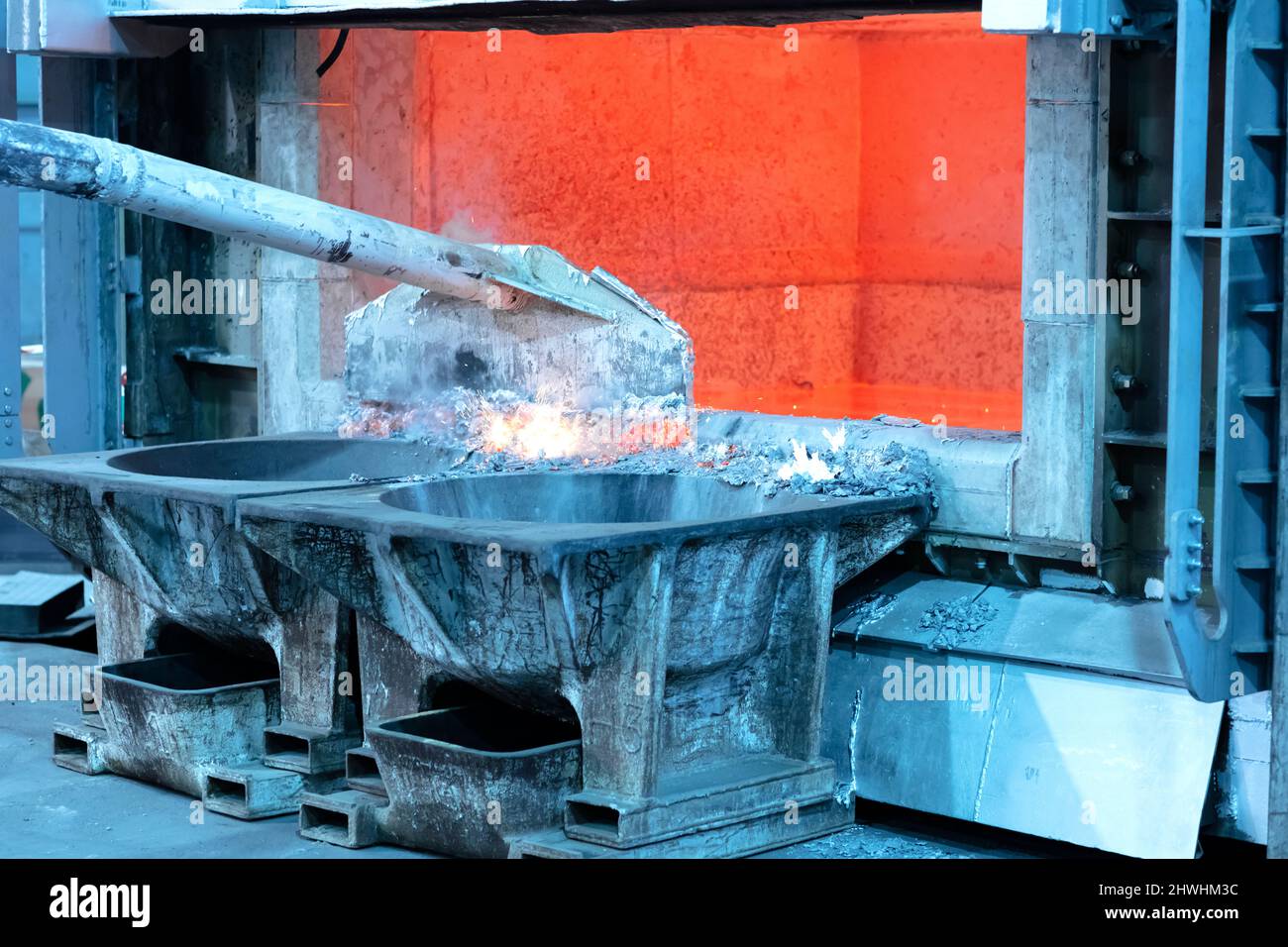Exactly How Aluminum Foundry Contributes to Innovations in Aerospace Engineering
Aluminum factories are indispensable to improvements in aerospace engineering. They produce light-weight, high-strength components that are necessary for contemporary aircraft. Through advanced casting strategies, these shops create intricate geometries that boost structural stability. Furthermore, the development of superior Aluminum alloys sustains the sector's emphasis on gas performance and sustainability. Difficulties continue to be in the manufacturing procedure. Understanding these aspects reveals the profound influence of Aluminum on aviation's future.
The Value of Lightweight Materials in Aerospace Style
As the aerospace market continues to advance, the significance of light-weight products comes to be increasingly obvious. The demand for efficiency and sustainability drives engineers to prioritize using materials that reduce overall weight without jeopardizing structural integrity. Light-weight materials, particularly Aluminum, play a crucial role in improving fuel efficiency, enhancing payload capability, and enhancing the general efficiency of airplane.
The integration of these products allows for cutting-edge layouts, allowing suppliers to produce more aerodynamic shapes that can hold up against extreme conditions. The decrease in weight not only lowers operational costs yet additionally adds to a reduced ecological footprint, straightening with worldwide initiatives toward sustainability in air travel.
Advanced Spreading Techniques in Aluminum Foundries
Advanced casting strategies in Aluminum factories play a vital function in aerospace engineering by making it possible for the manufacturing of lightweight and accurate parts. Developments in mold and mildew design and accuracy spreading procedures are important in achieving perfect efficiency and architectural integrity. In addition, the advancement of light-weight alloys improves the overall performance and performance of aerospace applications.
Ingenious Mold Layout
Ingenious mold layout plays an essential duty in the effectiveness and effectiveness of Aluminum shops, especially within the aerospace sector. By leveraging innovative materials and strategies, contemporary mold and mildews can be engineered to stand up to high temperatures and stress, making sure peak efficiency throughout the spreading process. These designs usually integrate complicated geometries that permit the manufacturing of lightweight yet structurally audio components, crucial for aerospace applications. Furthermore, making use of computer-aided layout (CAD) software application helps with accurate modeling, making it possible for foundries to imitate and refine mold layouts before physical manufacturing starts. This not only improves the quality of actors components yet likewise reduces waste and preparation, bring about significant expense savings. Overall, innovative mold layout is a cornerstone of progress in Aluminum Foundry innovation for aerospace design.
Accuracy Casting Procedures
The effectiveness of innovative mold styles effortlessly incorporates with accuracy spreading processes, which are vital for generating top quality Aluminum elements in aerospace engineering. These procedures, consisting of sand spreading, die spreading, and investment casting, assure the production of complex geometries with tight resistances. Advanced methods like vacuum cleaner spreading and stress pass away casting improve the honesty and surface area coating of the final products. Precision casting reduces material waste while maximizing the mechanical buildings of Aluminum, essential for aerospace applications. On top of that, using real-time surveillance and progressed simulation tools throughout the spreading procedure permits instant adjustments, resulting in improved quality control. Jointly, these accuracy spreading processes placement Aluminum shops at the center of aerospace technology, sustaining the market's demand for integrity and performance.
Light-weight Alloy Development
As aerospace engineers look for to improve gas effectiveness and performance, lightweight alloy growth becomes a crucial emphasis in Aluminum foundries. These shops utilize advanced casting strategies to produce alloys that supply premium strength-to-weight proportions. Technologies in alloy structure, including the incorporation of elements like lithium and magnesium, make it possible for the manufacturing of materials that hold up against extreme conditions while reducing general aircraft weight. Methods such as die casting and financial investment spreading assist in the precision production of complex shapes, which are important for aerospace applications. Additionally, continuous research intends to enhance these alloys for improved mechanical homes and boosted toughness. By prioritizing lightweight alloy advancement, Aluminum shops significantly contribute to the advancement of aerospace design, leading the means for more effective and sustainable aircraft styles.

Enhancing Architectural Honesty Via Aluminum Elements
Aluminum parts supply substantial benefits in improving architectural stability within aerospace engineering. Their light-weight nature contributes to total effectiveness while maintaining strength, which is crucial for airplane performance. Additionally, the stress resistance residential properties of Aluminum assistance guarantee the durability and integrity of aerospace structures under numerous operational conditions.
Light-weight Product Conveniences
While traditional products typically endanger weight for strength, using Aluminum elements in aerospace design offers substantial benefits in architectural integrity. Aluminum's lightweight nature adds to total style performance, enabling more structured aircraft that consume less fuel, thereby enhancing sustainability. The product's superb strength-to-weight ratio warranties that parts preserve longevity without adding unnecessary mass. This top quality fosters improved performance and agility in flight, along with enhanced haul capacities. Additionally, Aluminum's resistance to rust extends the life-span of aerospace structures, lowering maintenance costs and enhancing security. As suppliers increasingly adopt Aluminum alloys, the aerospace market experiences a transformative shift towards much more efficient and efficient design options that focus on both performance and environmental responsibility.
Stress And Anxiety Resistance Residences
Although numerous materials have special residential or commercial properties, Aluminum's Click This Link phenomenal stress and anxiety resistance site web stands out as a critical factor in improving the structural stability of aerospace components. This resistance plays a vital role in guaranteeing that aircraft can withstand numerous functional anxieties, including tiredness, influence, and ecological conditions. Aluminum alloys, especially engineered for aerospace applications, show high tensile stamina while preserving lightweight features, enabling engineers to make much more reliable structures - Aluminum Foundry. Additionally, the capability of Aluminum to endure cyclic loading without considerable deformation contributes to the longevity and reliability of aerospace components. As improvements continue in Aluminum Foundry strategies, the development of stress-resistant Aluminum parts promises further improvements in performance, safety and security, and performance across the aerospace sector, solidifying Aluminum's function as a favored material in modern-day design
Fuel Performance Improvements Driven by Aluminum Innovations
As the aerospace sector seeks to enhance fuel efficiency, ingenious uses of Aluminum have actually emerged as an important solution. Aluminum's light-weight nature notably decreases aircraft weight, permitting for lower gas consumption throughout trip. This reduction in weight is crucial, as even small reductions can result in substantial enhancements in general gas economic climate.
Advanced Aluminum alloys, designed for enhanced stamina and sturdiness, make it possible for suppliers to create parts that keep architectural integrity while reducing mass - Aluminum Foundry. Additionally, the assimilation of Aluminum in airframes and engine components promotes improved the rules of aerodynamics, adding to minimized drag and increased performance
The fostering of Aluminum in aerospace not only fulfills the demand for fuel-efficient style yet additionally lines up with regulatory pressures for lower discharges. As these technologies remain to develop, they play a considerable duty in setting brand-new benchmarks for fuel performance, making certain that the aerospace sector can meet expanding environmental and economic challenges.

The Function of Aluminum in Sustainable Air Travel Practices
The enhancing emphasis on sustainable aviation methods has actually positioned Aluminum as a vital product in the mission for greener airplane style. Known for its lightweight buildings, Aluminum considerably minimizes aircraft weight, causing lower useful source fuel intake and exhausts. Its recyclability better improves its sustainability account, as Aluminum can be recycled forever without loss of quality. This particular supports a round economic situation within the air travel sector, reducing waste and resource exhaustion.
Innovations in Aluminum alloys have boosted their toughness and corrosion resistance, enabling for longer solution life and lowered upkeep demands. These innovations facilitate the development of a lot more efficient airplane structures, adding to general sustainability efforts. Additionally, Aluminum's thermal conductivity plays an important role in energy-efficient designs, enhancing systems such as heat exchangers. Jointly, these qualities underscore Aluminum's essential role beforehand lasting air travel, aligning with worldwide campaigns targeted at lowering the environmental influence of flight.
Obstacles Dealt With by Aluminum Foundries in Aerospace Manufacturing
While Aluminum shops play a vital role in aerospace manufacturing, they encounter significant difficulties that can impact production performance and quality. One significant challenge is the rigorous quality assurance requirements called for in the aerospace industry. Any type of issue can compromise safety and performance, requiring strenuous evaluation procedures that expand production timelines. Furthermore, factories often contend with changing resources costs, which can affect prices and earnings. The intricacy of Aluminum alloys made use of in aerospace applications further complicates the production procedure, as specific formulations are important for attaining wanted mechanical buildings. Proficient labor scarcities prevent the capability to maintain top quality production levels. Ecological laws enforce limitations on discharges and waste administration, calling for factories to invest in sustainable practices, which can be cost-prohibitive. These factors jointly produce a landscape where Aluminum factories should continuously adjust to fulfill the advancing needs of aerospace manufacturing while making sure safety and compliance.
Future Fads in Aluminum Applications for Aerospace Engineering
With developments in technology and increasing needs for effectiveness, the future of Aluminum applications in aerospace engineering is positioned for considerable change. The integration of cutting-edge Aluminum alloys and compounds is expected to improve strength-to-weight ratios, leading to even more fuel-efficient aircraft layouts. On top of that, advancements in additive production techniques will certainly allow for the manufacturing of complicated Aluminum frameworks that were previously difficult, optimizing efficiency and reducing waste.

Lasting practices will play an essential function, with an expanding focus on reusing Aluminum to minimize environmental effect. The aerospace field is most likely to embrace smarter manufacturing processes, such as automation and expert system, ensuring greater top quality and precision in Aluminum components. Collaborations in between Aluminum foundries and aerospace companies will certainly cultivate research and development, paving the means for brand-new applications that fulfill the stringent requirements of modern aerospace design. On the whole, the future looks assuring for Aluminum's duty fit the skies
Often Asked Inquiries
What Are the Ecological Effects of Aluminum Manufacturing in Aerospace?
The environmental effects of Aluminum production in aerospace include substantial power consumption, greenhouse gas exhausts, and habitat disruption. Additionally, mining processes can bring about dirt deterioration and water contamination, increasing concerns about sustainability and eco-friendly equilibrium.
How Does Aluminum Contrast to Other Materials in Aerospace Applications?
Aluminum offers an one-of-a-kind mix of lightweight residential properties, rust resistance, and cost-effectiveness compared to various other materials. Its high strength-to-weight proportion makes it especially helpful for aerospace applications, enhancing fuel performance and total efficiency in aircraft design.
What Certifications Do Aluminum Foundry Workers Requirement for Aerospace Projects?
Aluminum Foundry workers require specialized training in metallurgy and casting methods, in addition to expertise of aerospace sector criteria. Qualifications in high quality control and safety procedures are also important to assure compliance with stringent aerospace project needs.
Are There Any Kind Of Safety Worry About Using Aluminum in Aerospace Design?
Safety worries regarding Aluminum in aerospace design consist of susceptibility to stress and anxiety, fatigue, and rust cracks. Correct treatment and alloy selection are necessary to reduce these threats, ensuring structural stability and general safety and security in aerospace applications.
Just How Does Aluminum Recycling Advantage the Aerospace Sector?
Aluminum reusing greatly benefits the aerospace industry by decreasing material expenses, minimizing environmental impact, and conserving energy. This sustainable practice enhances the industry's efficiency while promoting using light-weight, high-performance parts in aircraft manufacturing.
Advanced casting methods in Aluminum factories play an essential duty in aerospace design by making it possible for the manufacturing of specific and light-weight elements. Innovative mold design plays an essential role in the performance and performance of Aluminum shops, specifically within the aerospace market. As aerospace engineers seek to enhance gas effectiveness and performance, light-weight alloy growth ends up being a vital focus in Aluminum shops. Aluminum alloys, especially crafted for aerospace applications, display high tensile toughness while preserving light-weight features, allowing engineers to make extra effective structures. Cooperations in between Aluminum factories and aerospace companies will promote study and development, paving the way for brand-new applications that satisfy the stringent demands of modern aerospace design.